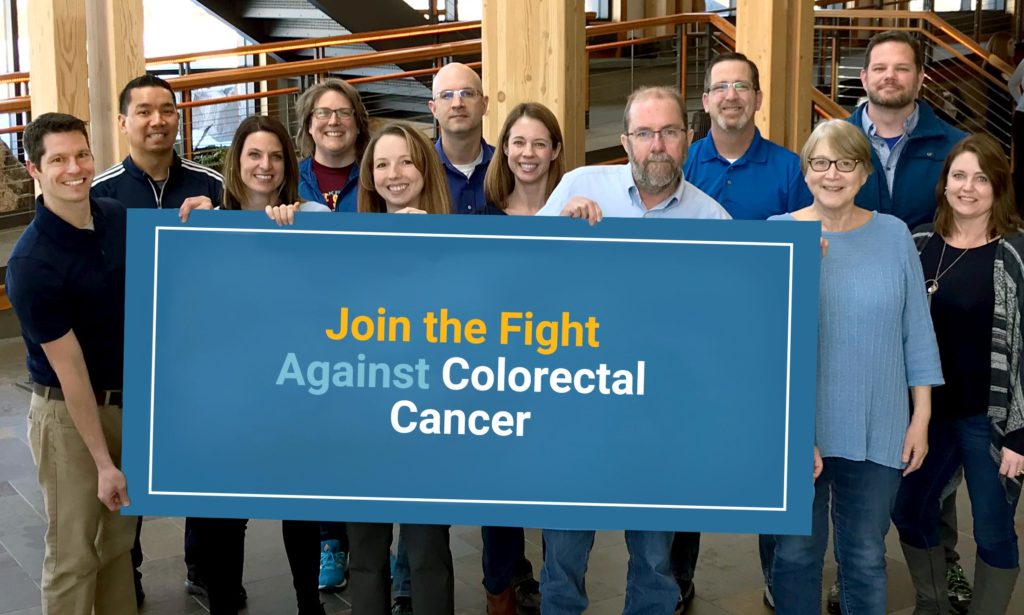In the United States, March means college basketball. “March Madness” brings us the excitement and entertainment of the NCAA college basketball championship tournament. But for a dedicated group of advocates, researchers, patients and families, it means something else entirely. March is colorectal cancer awareness month.
According to the American Cancer Society, colorectal cancer will be the third most frequently diagnosed and the second most deadly cancer in the United States in 2019 (1). Most of those who develop colorectal cancer do not have a family history or genetic connection to the disease. However, in some families, cancer occurs more often than expected. A family history of colorectal cancer can suggest a genetic factor.
Inherited Forms of Colorectal Cancer
There are two genetic syndromes associated with colorectal cancer, Familial Adenomatous Polyposis and Lynch Syndrome. Both of these are the result of autosomal dominant mutations.
FAP is relatively rare, causing approximately 1% of all colon cancers, and is diagnosed by the growth of hundreds to thousands of adenomas polyps in the colon at an early age. If not detected and treated, these polyps will almost always develop into cancer.
Lynch Syndrome causes roughly 3% of all colorectal cancers. In addition, Lynch syndrome is associated with several other cancers including endometrial, ovarian and stomach cancer. As many as 1 in 300 people might be carriers for the mutations associated with Lynch syndrome (2), and all these carriers have an increased risk of developing a lynch-associated cancer.
Colorectal Cancer is Preventable and Treatable
The good news is that despite its high incidence, colorectal cancer is unique in that it is one of the most preventable and, if found early, most treatable forms of cancer. Colorectal cancers typically start out as polyps, which are abnormal growths inside the colon that may develop into cancer if not removed. Early screening tests such as colonoscopies can help doctors find and remove these growths before they have the chance to develop into cancer.
Join Us in the Fight
This year, Promega is joining Fight Colorectal Cancer to support research advocacy for colorectal cancer. You can learn more about the importance of MSI status and hereditary colorectal cancer on our MSI Technology web page, and read more about one woman’s personal story about Lynch Syndrome here.
You can also take the pledge to do one of the following:
• Learn my family history
• Talk to my friends and family about colorectal cancer
• Get screened
• Wear blue for colorectal cancer month
• Get involved in the fight against colorectal cancer
It is really simple, you don’t give us any personal information, and for every pledge we receive, we are donating $10* to Fight Colorectal Cancer to support their Research Advocacy Training and Support (RATS) program.
So, before you start filling out your basketball brackets, take a couple minutes and join the fight against colorectal cancer.
*One pledge per person, total donation up to $50,000.

